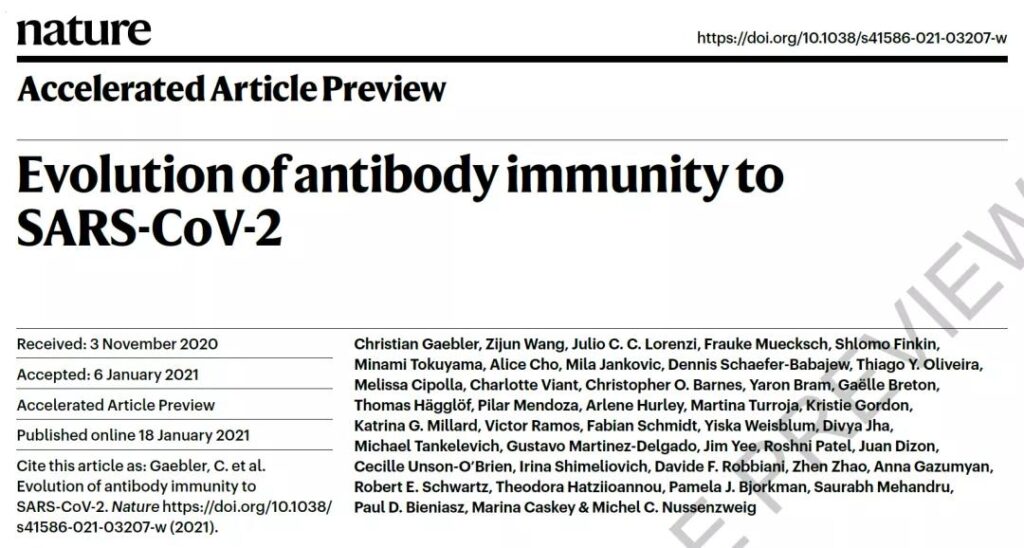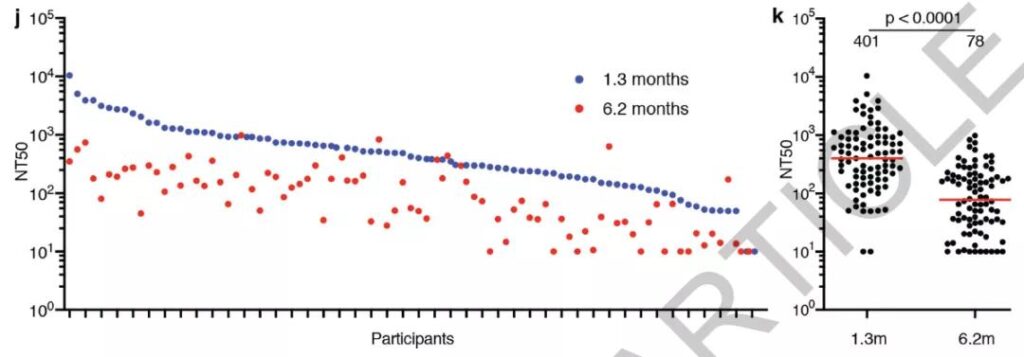Immunity at least 6 months after infected with coronavirus (SARS-CoV-2)
- Aspirin: Study Finds Greater Benefits for These Colorectal Cancer Patients
- Cancer Can Occur Without Genetic Mutations?
- Statins Lower Blood Lipids: How Long is a Course?
- Warning: Smartwatch Blood Sugar Measurement Deemed Dangerous
- Mifepristone: A Safe and Effective Abortion Option Amidst Controversy
- Asbestos Detected in Buildings Damaged in Ukraine: Analyzed by Japanese Company
Immunity at least 6 months after infected with coronavirus (SARS-CoV-2)
Immunity at least 6 months after infected with coronavirus (SARS-CoV-2). Nature: After being infected with COVID-19, the human body can remember the virus for at least 6 months, and respond quickly to the next infection.
The human immune system produces antibodies during infection, and these antibodies can specifically neutralize infectious agents. Human antibodies against the new coronavirus (SARS-CoV-2) have been shown to prevent infection in animal models. The level of these antibodies may decrease over time, but as the name suggests, memory B cells can “remember” the infectious agent and induce the immune system to produce the same antibodies during reinfection.
On January 18, 2021, Nature magazine published a research result of the Rockefeller University titled: Evolution of antibody immunity to SARS-CoV-2 in advance.
The research team analyzed 87 people who had been infected with the new coronavirus and found that their specific memory B cell levels did not change during the entire study period. Memory B cells are immune cells that remain in the body after infection and can be quickly re-infected by the new coronavirus. Proliferate and produce antibodies.
The study showed that immunity after infection with the new coronavirus (SARS-CoV-2) may be maintained for at least 6 months. This shows that when individuals who have been infected with the new coronavirus are exposed to the new coronavirus again, they may respond quickly and effectively.

The research team evaluated the conditions of 87 patients diagnosed with COVID-19 pneumonia at 1.3 months and 6.2 months after being infected with the new coronavirus. Studies have found that although the activity of neutralizing antibodies will decrease over time, the number of memory B cells has not changed.

In addition, this study also proved that the antibodies produced by these memory B cells are stronger than the original antibodies and are more resistant to mutations in the spike protein that helps the virus enter the cell.
These observations indicate that memory B cells have the ability to evolve in the presence of small amounts of persistent viral antigens (small viral proteins that can be recognized by the immune system). The author concluded that the continued existence and evolution of memory B cells indicate that when a new coronavirus (SARS-CoV-2) reinfection occurs, the human body may quickly produce powerful virus-neutralizing antibodies
(source:internet, reference only)
Disclaimer of medicaltrend.org



